Shop By
-
Router Cisco 8101-32H
EAN: 17200Cisco 8100 1 RU Chassis with 32x100GbE QSFP28 with IOS XR and without HBMGPL Price:54018 $
-
Router Cisco 8102-64H
EAN: 17201Cisco 8100 2 RU Chassis with 64x100GbE QSFP28 with IOS XR and without HBMGPL Price:30954 $
-
Router Cisco 8101-32FH
EAN: 17202Cisco 8100 1 RU Chassis with 32x400GbE QSFP56-DD with IOS XR and without HBMGPL Price:172860 $
-
Router Cisco 8111-32EH
EAN: 17203Cisco 8100 1 RU Chassis with 32x800G or 64x400GbE QSFP-DD800 with IOS XR and without HBM -
Router Cisco 8101-32H-O
EAN: 17204Cisco 8100 1 RU Chassis with 32x100GbE QSFP28 with Open Software and without HBMGPL Price:54018 $
-
Router Cisco 8102-64H-O
EAN: 17205Cisco 8100 2 RU Chassis with 64x100GbE QSFP28 with Open Software and without HBM
GPL Price:30954 $
-
Router Cisco 8101-32FH-O
EAN: 17206Cisco 8100 1 RU Chassis with 32x400GbE QSFP56-DD with Open Software and without HBMGPL Price:46330 $
-
Router Cisco 8111-32EH-O
EAN: 17207Cisco 8100 1 RU Chassis with 32x800G or 64x400GbE QSFP-DD800 with Open Software and withoutВ HBM -
Router Cisco 8201-SYS
EAN: 17208Cisco 8200 1 RU Chassis with 24x400GbE QSFP56-DD and 12x100GbE QSFP28 with IOS XRGPL Price:243240 $
-
Router Cisco 8202-SYS
EAN: 17209Cisco 8200 2 RU Chassis with 12x400GbE QSFP56-DD and 60x100GbE QSFP28 with IOS XRGPL Price:268664 $
High-performance and high-quality network systems are divided into classes such as routers and switches with diverse hardware and software (software). Over time, this distinction has been practically leveled, thanks to the development of multifunctional and innovative switching and routing chips.
Advanced technologies balance out any capabilities of the SP class of service providers. They also provide great switching benefits for custom ASICs.
The Cisco 8000 Series Routers maximize the performance and functionality of carrier-class routing with unique, increased density, power, and performance. These metrics allow the Cisco 8000 Series to be deployed in an unprecedented range of routing roles.
All routers from this modern innovative line support a single structure, one of the advanced ASIC architectures and an operating system. Thanks to these features, the deployment, configuration and further operation of routers is greatly simplified.
The 8000 series routers are based on progressive, revolutionary Cisco Silicon One technology, IOS XR software and a set of prepared chassis. This set of features and options allows you to make a significant breakthrough in terms of reliability, transfer speed and data protection, as well as simplifying the management of the router.
The series includes models that consist of a full range of multifunctional devices with increased scalability, global, deep buffering, integrated extended memory with increased HBM bandwidth. The routers are optimized up to 400 Gigabit Ethernet (GbE) with a maximum throughput of 10.8 to 25.6 Tbps in a 1RU form factor.
The routers can also be delivered as a control unit in a modular rack-integrated system that will provide full duplex forwarding at 260 Tbps.
The line of routers from the American corporation includes two radically different router architectures, all of which use chips and Cisco Silicon One ASIC hardware. The 8800 line consists of the Cisco 8804, 8808, 8812, and 8818. These models provide up to 14.4 Tbps per line card through 100 and 400GbE ports.
The Cisco 8100 and 8200 series routers use the Cisco Router-on-Chip (RoC) architecture to provide the most complete routing functionality with a single ASIC per device. Both support a full suite of routing options, but the 8200 has deep buffers and extended forwarding tables, while the 8100 series is used for data center applications with lower buffering and distribution table scaling requirements.
The RoC building architecture differs from System-on-Chip (SoC) switches by supporting massive forwarding tables, deep buffers, more loyal packet operations, and increased programmability. The Cisco 8100 and 8200 provide network bandwidth up to 25.6 Tbps with less power consumption than comparable devices.
Advanced technologies balance out any capabilities of the SP class of service providers. They also provide great switching benefits for custom ASICs.
The Cisco 8000 Series Routers maximize the performance and functionality of carrier-class routing with unique, increased density, power, and performance. These metrics allow the Cisco 8000 Series to be deployed in an unprecedented range of routing roles.
All routers from this modern innovative line support a single structure, one of the advanced ASIC architectures and an operating system. Thanks to these features, the deployment, configuration and further operation of routers is greatly simplified.
The 8000 series routers are based on progressive, revolutionary Cisco Silicon One technology, IOS XR software and a set of prepared chassis. This set of features and options allows you to make a significant breakthrough in terms of reliability, transfer speed and data protection, as well as simplifying the management of the router.
The series includes models that consist of a full range of multifunctional devices with increased scalability, global, deep buffering, integrated extended memory with increased HBM bandwidth. The routers are optimized up to 400 Gigabit Ethernet (GbE) with a maximum throughput of 10.8 to 25.6 Tbps in a 1RU form factor.
The routers can also be delivered as a control unit in a modular rack-integrated system that will provide full duplex forwarding at 260 Tbps.
The line of routers from the American corporation includes two radically different router architectures, all of which use chips and Cisco Silicon One ASIC hardware. The 8800 line consists of the Cisco 8804, 8808, 8812, and 8818. These models provide up to 14.4 Tbps per line card through 100 and 400GbE ports.
The Cisco 8100 and 8200 series routers use the Cisco Router-on-Chip (RoC) architecture to provide the most complete routing functionality with a single ASIC per device. Both support a full suite of routing options, but the 8200 has deep buffers and extended forwarding tables, while the 8100 series is used for data center applications with lower buffering and distribution table scaling requirements.
The RoC building architecture differs from System-on-Chip (SoC) switches by supporting massive forwarding tables, deep buffers, more loyal packet operations, and increased programmability. The Cisco 8100 and 8200 provide network bandwidth up to 25.6 Tbps with less power consumption than comparable devices.
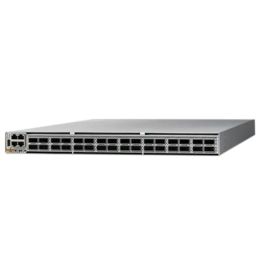
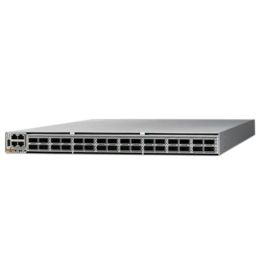
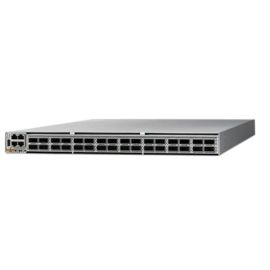
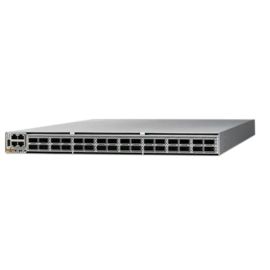
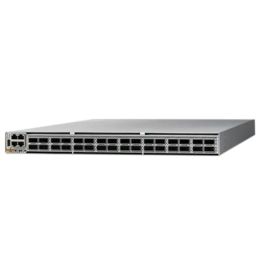
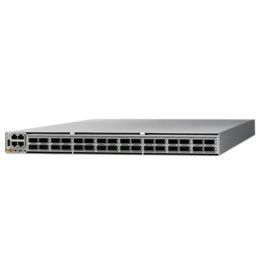
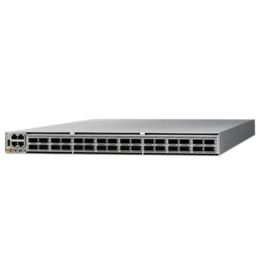
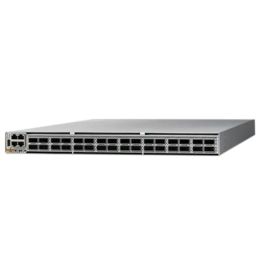
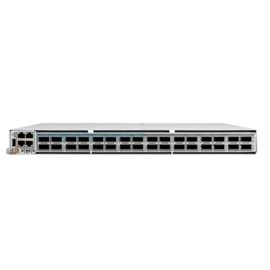
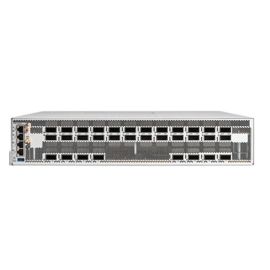
Log In